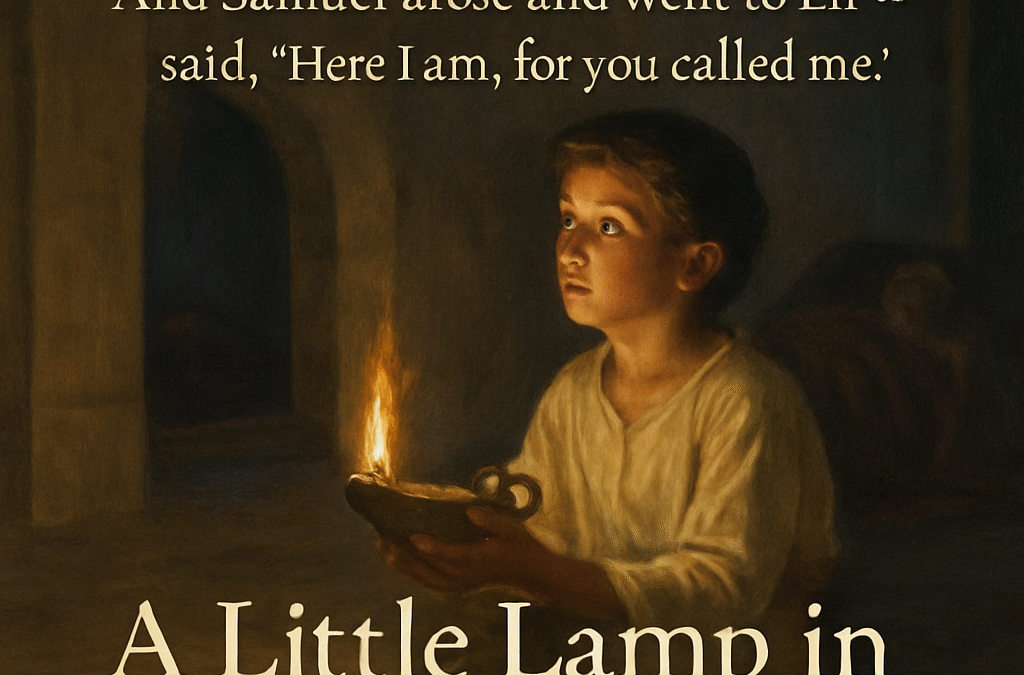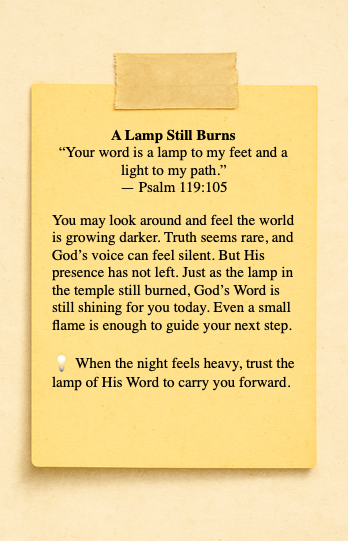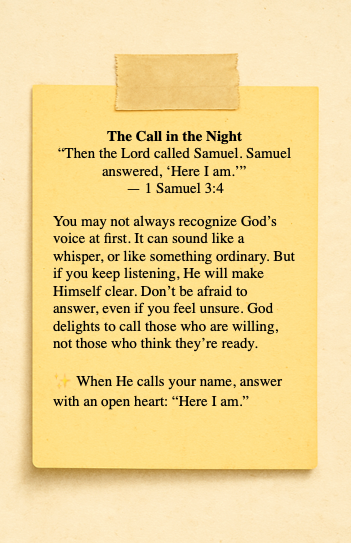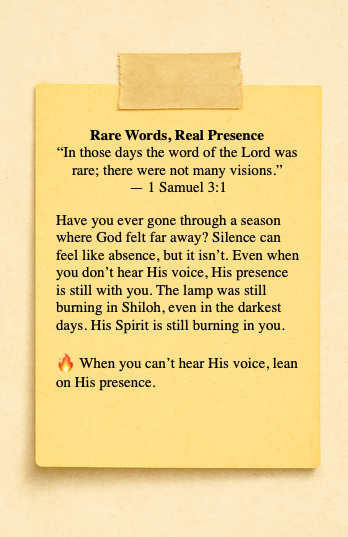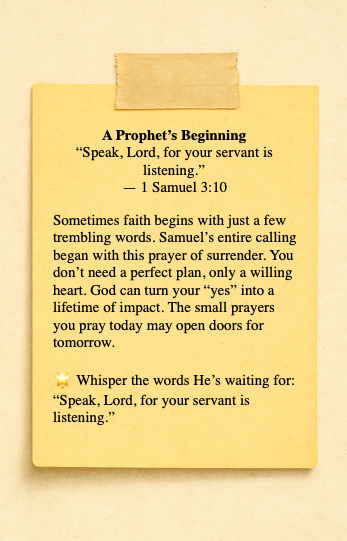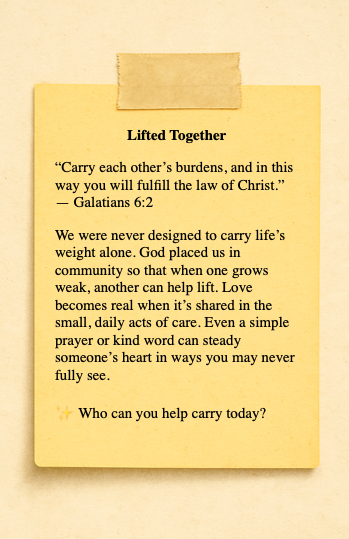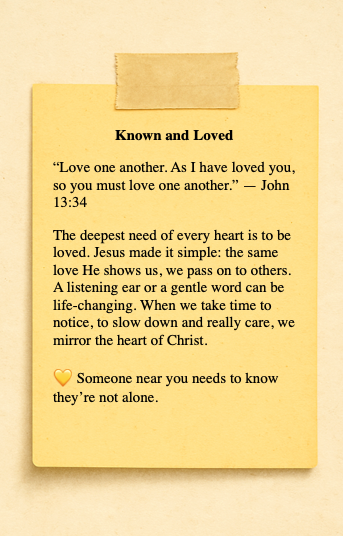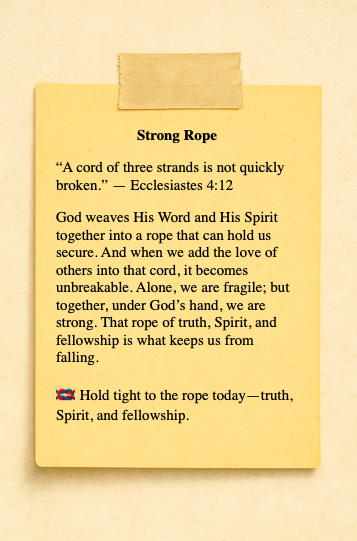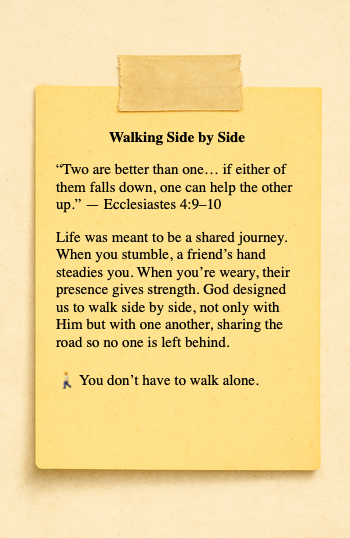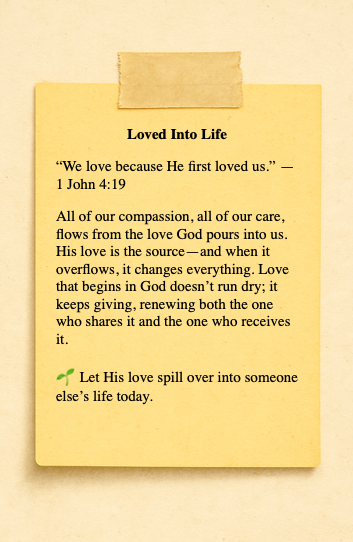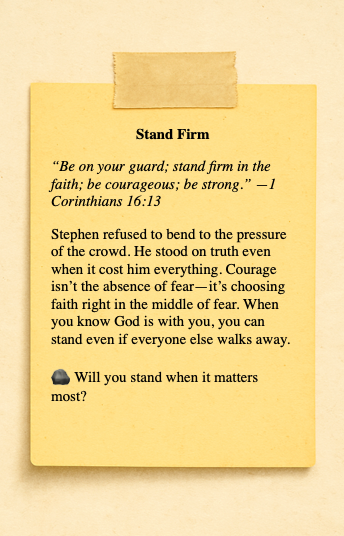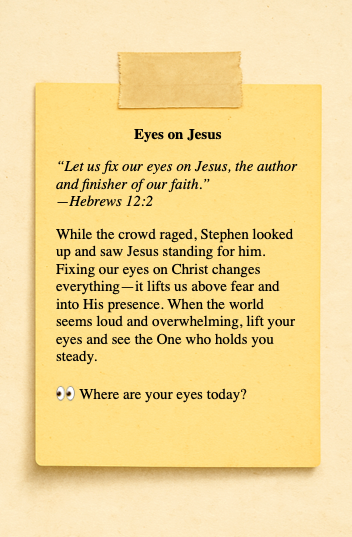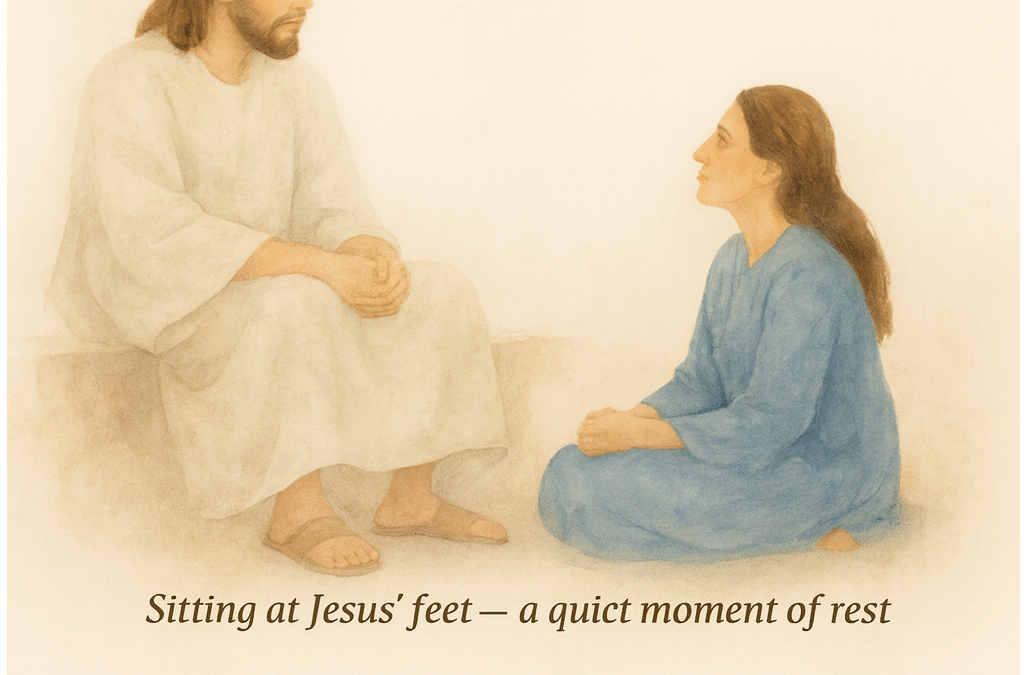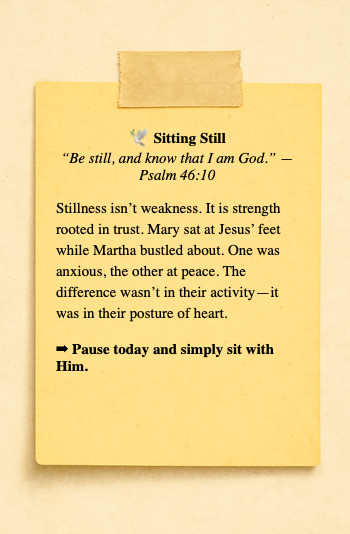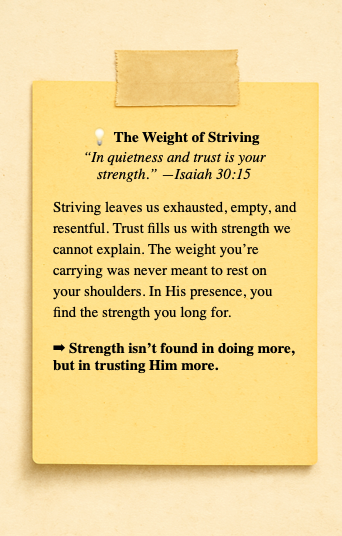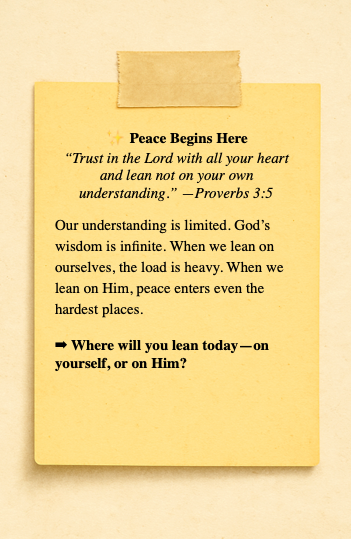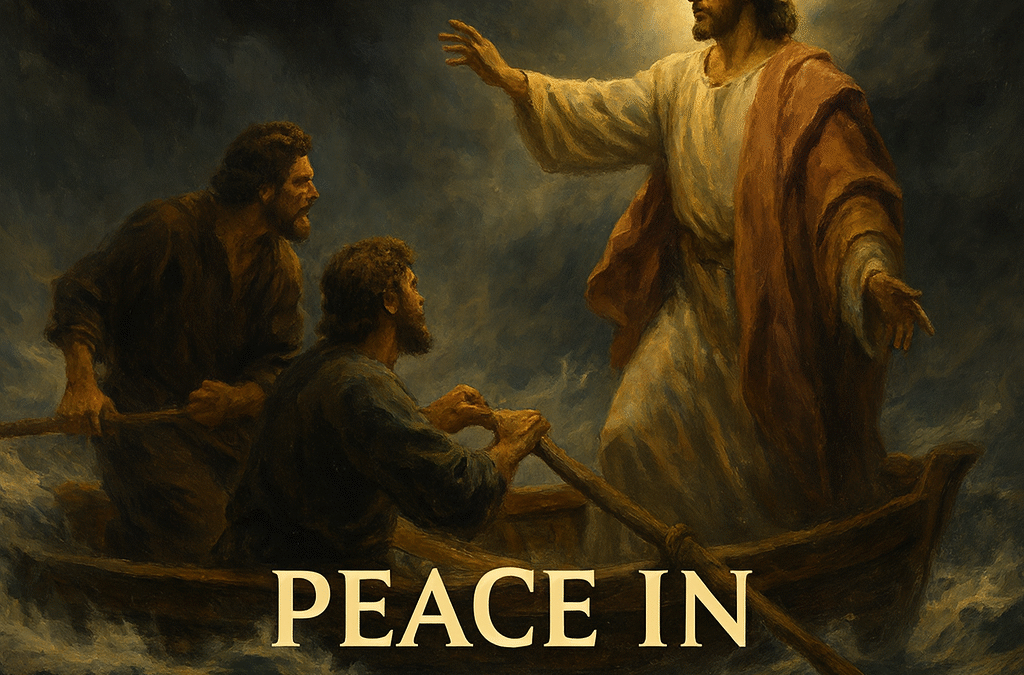
Peace in the Storm
Peace in the Storm
Listen to the Devotional
Press play to hear the full devotional, “Peace in the Storm.”
Peace in the Storm
“Then He arose and rebuked the wind, and said to the sea, ‘Peace, be still!’ And the wind ceased and there was a great calm.”
— Mark 4:39
The day had been long. Crowds pressed close, miracles unfolded, and as evening fell, Jesus said to His disciples, “Let us cross over to the other side.” They climbed into a small fishing boat and pushed away from shore. The water shimmered under fading light as they set their course across the Sea of Galilee.
But night fell fast, and so did the storm 🌊. The wind howled across the water, churning waves high above the bow. The boat creaked and groaned, taking on water faster than they could bail. Seasoned fishermen shouted orders over the roar, their hands trembling from fear more than from cold. And there—down in the bottom of the boat—Jesus slept on a cushion.
They couldn’t believe it. With turmoil all around, He was perfectly still. Finally, someone shouted, “Teacher, don’t You care that we’re perishing?”
Jesus stood. The storm raged on, wind lashing His robe, waves breaking at His feet. But the sea fell silent the moment He spoke.
“Peace. Be still.”
The wind obeyed. The water stilled. And in the sudden calm, their fear turned to awe. “Who is this,” they whispered, “that even the wind and the sea obey Him?” Then Jesus looked at them and said softly, “Why are you so fearful? How is it that you have no faith?”
It was the same Voice that once echoed over the restless deep of creation. Long before this night, before boats and storms and frightened hearts, the Spirit of God hovered over the wild, unformed waters. The universe held its breath. There was no sound, no light, only a vast and trembling depth waiting for a word.
Then, through that ancient darkness, came the Voice. Not a human effort. Not a desperate plan. A single, sovereign command: “Let there be…” ✨ And light exploded where there had been none. Waters parted, stars awakened, and order rose from the swirling depths. Creation itself shuddered with recognition — peace had entered the world.
That same Voice now stood on the deck of a storm-tossed boat. The same Word that brought order from nothingness now was flesh and bone, resting in their storm. When the sea raged, the Creator of Heaven and Earth slept — not out of indifference, but out of authority. His rest was not apathy; it was sovereignty.
The disciples, gripped by fear, had cried out, “Teacher, don’t You care that we’re perishing?” And the Voice that once spoke galaxies into place answered again: “Peace, be still.”
In Genesis, that Voice pushed back the waters and formed the world. In Jonah’s story, that Voice spoke to the storm and the sea obeyed. And here, in Mark 4, that same eternal Voice calmed creation once more — not with effort, but with identity.
Peace didn’t come because the storm grew weaker. It came because the presence of the Creator was near. The sea has always known its Maker. And so have you.
When the storms rise in your life — the kind that toss your faith, your family, your peace — remember this: it is not necessary for the turmoil to end. It is not necessary for the storm to cease. What is necessary is for you to cry out for the voice of God — the same voice that spoke light into darkness, that shaped the mountains and quieted the sea.
His is the voice that sees you, the voice that knows you by name, the voice that breathed life into your lungs. ❤️ The voice that commands the wind still calls to your heart.
Call to Him. He will answer.
Jesus said, “Man does not live by bread alone, but by every word that proceeds from the mouth of God.” His voice still hovers over the waters. His Word still brings peace where none should be. The same Spirit that calmed creation now whispers within you.
Don’t pray merely for calmer seas. Pray to hear His voice — and let His Word speak peace into your storm.
What storm are you facing right now that needs less control and more of His voice?
Prayer:
Lord, when the waves rise and fear grips my heart, remind me that You are not distant — You are near. Speak into my storm, and let Your Word bring peace where my strength cannot. Teach me to seek Your voice above all other noise. I don’t need the storm to end, only to know that You are in the boat with me. Amen.







